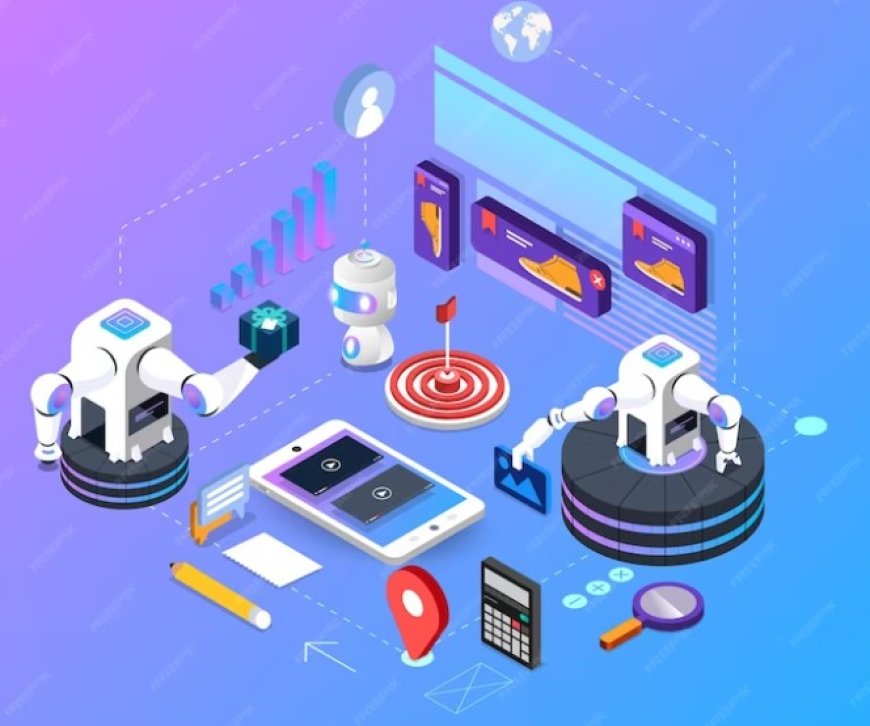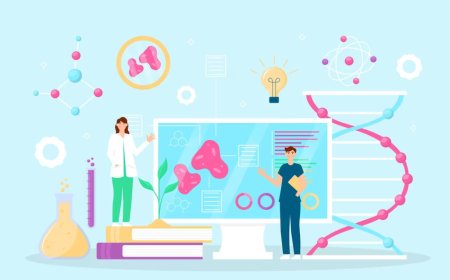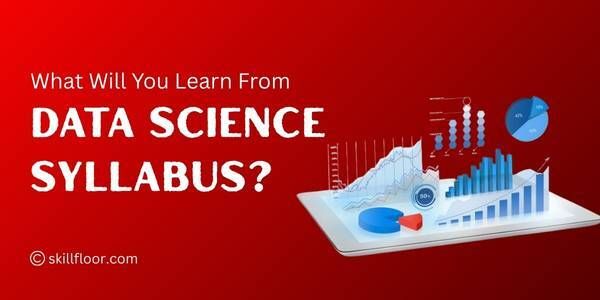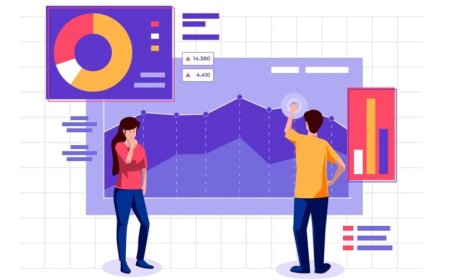The Role of Data Science in Driving Artificial Intelligence and Automation
Explore how data science fuels artificial intelligence and automation. Learn about the key role data plays in advancing AI and automation in various industries.

In the ever-evolving landscape of technology, two terms that have gained significant traction are Artificial Intelligence (AI) and Automation. These concepts have transformed the way we live, work, and interact with machines. But what powers these advancements, enabling them to make informed decisions and perform tasks with precision? The answer lies in the realm of Data Science – a field that has become the cornerstone of AI and Automation. In this blog, we will delve into the pivotal role that Data Science plays in driving the progress of Artificial Intelligence and Automation.
Data Science
Data Science is the practice of extracting knowledge and insights from data using various techniques, including data analysis, machine learning, and statistics. At its core, Data Science revolves around the extraction of patterns, trends, and valuable information from large datasets. This practice equips organizations with the ability to make data-driven decisions, enabling them to optimize processes, understand customer behavior, and enhance overall efficiency.
Data Science and Artificial Intelligence
Artificial Intelligence, often referred to as the simulation of human intelligence in machines, hinges on the availability of data. This is where Data Science comes into play. AI systems require vast amounts of data to "learn" and make intelligent decisions. Machine Learning, a subset of AI, is particularly reliant on data. It involves training algorithms on data to recognize patterns and make predictions or decisions without being explicitly programmed.
Data Science provides the foundation upon which AI algorithms are trained and refined. As AI models process and analyze data, they continuously learn and improve their accuracy. This iterative process, known as "training," is guided by the principles of Data Science – from data cleaning and preprocessing to feature engineering and model evaluation. Without quality data and the expertise of Data Scientists, AI systems would lack the ability to understand complex patterns and make informed decisions.
Automation through AI
Role of AI in Process Automation
Artificial intelligence plays a crucial role in automating various processes across industries. AI-driven automation involves the use of algorithms and models to perform tasks and make decisions that traditionally required human intervention. By analyzing data, recognizing patterns, and learning from experience, AI systems can streamline operations, reduce errors, and enhance efficiency.
Real-World Examples of Automation
There are numerous real-world examples of AI-driven automation. In manufacturing, robots equipped with AI vision systems can perform complex assembly tasks with precision. In customer service, chatbots and virtual assistants handle routine inquiries, freeing up human agents for more complex interactions. Autonomous vehicles utilize AI to navigate and make split-second driving decisions. These examples illustrate the broad applicability of AI in automating tasks and processes.
Benefits and Challenges
AI-driven automation offers several benefits, such as increased productivity, cost savings, and the ability to handle repetitive tasks 24/7. However, it also presents challenges. Job displacement is a concern in industries heavily adopting automation, and there can be resistance to trusting AI systems with critical decisions. Ethical and security considerations must also be addressed to ensure responsible and safe automation practices. Balancing the benefits and challenges of AI automation is a critical aspect of its implementation.
Data Science in Decision Making
Predictive Analytics
Predictive analytics is a crucial component of data science that involves the use of historical data and statistical algorithms to make informed predictions about future events. By leveraging patterns, trends, and correlations within data, data scientists can help businesses forecast outcomes. Whether it's predicting customer behavior, sales trends, or equipment failures, predictive analytics empowers organizations to make proactive decisions and allocate resources efficiently.
Prescriptive Analytics
Prescriptive analytics takes decision-making a step further by not only predicting future outcomes but also providing recommendations for optimal actions. This involves complex modeling and optimization techniques. By considering multiple decision variables and constraints, prescriptive analytics helps organizations find the best course of action to achieve their goals. It is particularly valuable in scenarios like supply chain optimization, resource allocation, and risk management.
Supporting Business Decisions
Data science plays a pivotal role in supporting business decisions across various domains. It assists in identifying opportunities, mitigating risks, and improving operational efficiency. By harnessing data-driven insights, organizations can make well-informed choices that lead to competitive advantages. Data science is not just a technical tool; it's a strategic asset that empowers decision-makers with evidence-based information for a more successful and sustainable future
Ethical and Privacy Considerations
Data Privacy and Security
Ensuring data privacy is paramount in the age of AI and automation. Safeguarding sensitive information, both personal and corporate, is essential. Robust encryption, access controls, and secure data storage are vital to prevent unauthorized access. Additionally, anonymization and data minimization techniques must be applied to protect individual privacy while using data for AI and automation.
Ethical AI Development
Ethical considerations are central to responsible AI development. Developers must prioritize fairness, transparency, and accountability in AI algorithms. Bias in AI models should be actively identified and mitigated to avoid discrimination. Furthermore, clear ethical guidelines and standards should be established to ensure AI benefits society as a whole, rather than perpetuating harmful biases.
Regulatory Compliance
Adhering to legal and regulatory frameworks is crucial in the deployment of AI and automation. Laws like the General Data Protection Regulation (GDPR) in Europe and similar regulations worldwide impose strict requirements for data handling and consent. Compliance not only avoids legal consequences but also fosters trust among users and stakeholders, making it an essential aspect of data-driven technologies.
Data Science's Influence on AI Ethics and Accountability
As AI becomes more integrated into our daily lives, questions of ethics and accountability come to the forefront. Here again, Data Science plays a crucial role. Data Scientists are responsible for ensuring that the data used to train AI models is representative, unbiased, and free from discriminatory elements. They work to mitigate the risks of AI reinforcing existing biases or making unfair decisions.
Data Science techniques, such as explainable AI, enable transparency in AI systems, allowing humans to understand the reasoning behind decisions made by machines. This fosters accountability and trust in AI-driven processes.
Challenges and Embracing Opportunities
While the synergy between Data Science, Artificial Intelligence, and Automation promises transformative benefits, it also presents challenges that must be navigated. One such challenge is the availability and quality of data. Data Science heavily relies on large, diverse, and clean datasets for effective training and analysis. Incomplete or biased data can lead to skewed AI models and inaccurate automation outcomes. Data Scientists play a critical role in curating and preprocessing data to ensure its reliability and relevance.
Moreover, the rapid pace of technological advancements demands ongoing learning and adaptation. Data Scientists must stay updated with the latest AI algorithms, tools, and methodologies to optimize their impact. The field of Data Science is a dynamic landscape, constantly evolving to address new challenges and capitalize on emerging opportunities.
Innovation Across Industries
The Data Science, Artificial Intelligence, and Automation transcends industry boundaries, offering innovative solutions that redefine traditional practices. In healthcare, AI-powered diagnostic tools analyze medical images and patient data, aiding in early disease detection. Manufacturing processes are optimized through predictive maintenance, reducing downtime and maximizing efficiency. Customer service experiences are enhanced with AI-driven chatbots that provide instant and personalized support.
Financial institutions leverage AI to detect fraudulent activities in real-time, safeguarding transactions and sensitive information. The agricultural sector benefits from precision farming, utilizing data-driven insights to optimize crop yields and conserve resources. With Data Science at the helm, AI-driven solutions enhance decision-making, elevate productivity, and pave the way for new business models and revenue streams.
The Quest for Continuous Advancement
As the symbiotic relationship between Data Science, Artificial Intelligence, and Automation deepens, the quest for continuous advancement remains a driving force. The collective efforts of Data Scientists, AI researchers, engineers, and industry experts propel us toward new horizons. The potential to solve complex challenges, unlock unprecedented insights, and revolutionize industries is limitless.
However, it's important to remember that ethical considerations, privacy concerns, and societal impacts accompany these advancements. Balancing innovation with responsible deployment is crucial to ensure that the benefits of AI and Automation are accessible to all while minimizing potential drawbacks.
Data Science plays a pivotal role in driving the advancement of Artificial Intelligence (AI) and Automation. It provides the crucial foundation by collecting, analyzing, and interpreting vast amounts of data, enabling AI systems to learn and make informed decisions. Through Data Science, AI algorithms become more accurate, adaptable, and effective, empowering automation processes across various industries. The symbiotic relationship between Data Science, AI, and Automation holds the key to unlocking unprecedented levels of efficiency, innovation, and progress in the modern technological landscape.





























































